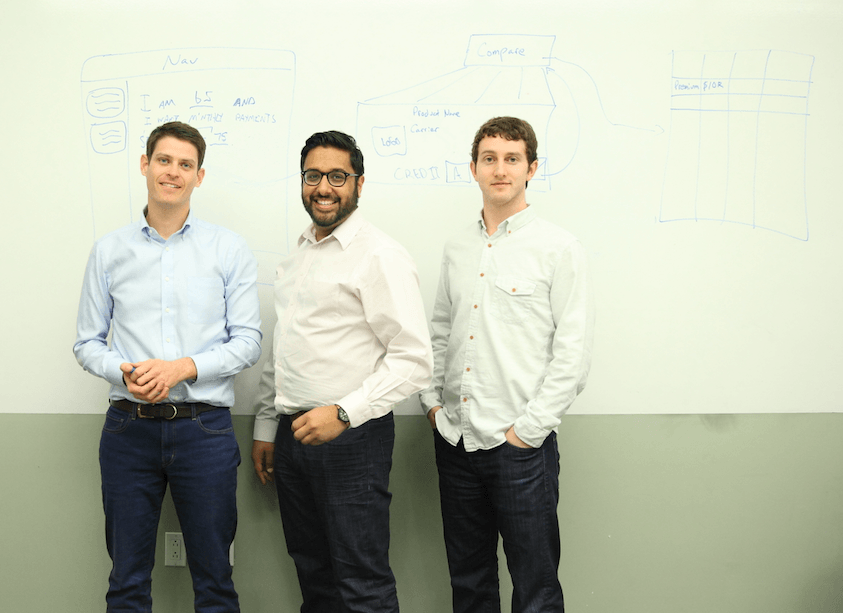
By Sarah McKinney
People are living longer than ever before: By 2050 the average life expectancy is 89 years old, and today there’s a woman living in the United States that’s 116 years old. The average age of retirement, however, is remaining relatively stagnant at 65. This means that older adults are now planning for more years without a paycheck, which can be stressful. Social Security helps, but typically only covers a portion of income lost, and reserves are expected to run out by 2034. Pension plans that used to be popular among employers, and that promised retirees a set monthly payment in the future, have been replaced with 401(k) offerings. This has transferred market risk and longevity risk from companies to individuals. The result? Many Americans are at risk of outliving their retirement savings.
Meet Matt Carey, CEO and co-founder of Abaris – a finance-tech startup that’s on a mission to make sure this doesn’t happen by increasing transparency in the annuities market and empowering 50- to 75-year-olds – through unbiased educational tools and personalized support – to decide whether or not it makes sense to include annuities in their retirement plan. Say what? If you think of annuities like a private market version of Social Security, you’re pretty close to understanding how they work – the amount you pay now is based on how much you want your set monthly payments to be in the future, kicking in at a pre-determined age and taking your other sources of future income (e.g., IRAs, 401(k)s, etc.) into consideration.
Launched in July of 2015, Abaris is the first direct-to-consumer online marketplace for annuity products, and the company is already seeing tens of thousands of monthly visitors. It partnered with eight of the 15 insurance providers that offer the annuity product it sells, and it's generating revenue through taking a 3- to 4-percent cut of insurance company profit – no additional fees are passed along to consumers.
I first crossed paths with Carey at the Kairos Global Summit, which took place in Los Angeles on Oct. 13 and brought together over 200 young entrepreneurs and 100 investors for a day of networking, roundtable conversations and keynote presentations. The 50 startups selected for this year’s K50 – a cohort of companies (with at least one founder under age 25) that are actively addressing complex challenges – each had a designated area where founders spent the morning giving demos and answering questions asked by passersby. The Abaris booth caught my eye given its focus on retirement and my interest in this segment of the population. After Carey explained what Abaris does – with zero reliance on unnecessarily confusing financial jargon – we scheduled time to speak by phone later in the week.
The idea for Abaris came when Carey was working on retirement policy at the U.S. Department of the Treasury, and trying to figure out what they should do now that fewer people have pension plans. His “a-ha” moment came after in-depth research revealed how stuck the current system was in an old paradigm due to its lack of transparency. Carey envisioned the technology needed to solve the problem. He started talking with his parents about their retirement planning, and began to realize how big the opportunity was to help people: There are currently 74.9 million baby boomers living in America, and by 2017 almost half of the U.S. adult population will be 50 or older. He left the Treasury to attend Wharton, where he met Abaris’ other two founders: Nimish Shukla (chief operating officer) and Adam Colombo (chief technology officer). He dropped out three-quarters of the way through to launch Abaris.
For naysayers wanting to argue that Abaris is doomed to fail given its reliance on baby boomers being tech-savvy, think again. A recent study by Pew Research Center reports that social media use among those 65 and older has more than tripled since 2010. Today, 35 percent of those 65+ use social media. A 2014 study by Nielsen found that, among baby boomers with at least $250,000 in liquid assets, 92 percent indicate online banking as their preferred channel for paying bills and 87 percent check their bank balances online. In 2012, people 66 and older spent an average of 25 hours a week online (WSL/Strategic Retail). In 2013, eMarketer reported that 9 in 10 baby boomers have made an online purchase.
Carey says his team spends a lot of time talking on the phone with users, and stresses the importance of education going both ways. “The psychological benefits of being able to count on an annuity payment in the future are huge,” Carey said, “and we learn so much from the older adults we speak with – about what their needs are, and their financial goals.”
Getting the remaining seven insurance companies on Abaris’ site is a near-term objective, but Carey says the company will also likely begin partnering with insurers to develop new, more flexible products. When asked what his vision of the future is, Carey said he wants everyone in their 30s and 40s to be aware of the option to purchase annuities when they get older, and for annuities to be an efficient asset class, just as stocks and bonds are. This, he said, will allow more people to make better-informed financial decisions when preparing for retirement, and ensure fewer people outlive their money.
Image credit: Abaris
Sarah McKinney is a freelance writer and Innovation Fellow at Encore.org. Follow her @sarahmck
TriplePundit has published articles from over 1000 contributors. If you'd like to be a guest author, please get in touch!














